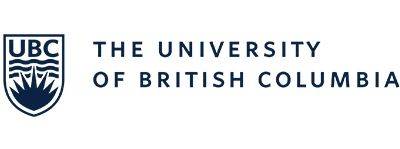
undergraduate
DegreeBachelor of Applied Science - Materials Engineering
Quick facts
-
Annual tuition (2022)
$57,736 CAD
-
Application fee
$125 CAD
-
Duration
4 years
-
PGWP
3 years
-
Min GPA
60 out of 100
These items are optional and you can choose them as you wish after applying for the course.
Deadlines
Overview
Bachelor of Applied Science - Materials Engineering
From the smallest nano-particles to massive mining challenges – materials engineering expertise is sought after in multiple industries worldwide.
You'll start with the core material groups: metals, ceramics, polymers and composites.
By the fourth year, you’ll solve process-design problems and materials-selection solutions for diverse applications in transportation systems, fuel cells, supersonic aircraft, advanced computers, sports equipment, and biomedical devices.
Materials Engineering at the University of British Columbia is concerned with the characterization, processing, and use of the design of metallic and non-metallic materials.
An optional Co-operative Education program allows you to obtain twenty months of related experience in the last three years of your program.
Estimate your cost
Residency
Count of person
$68,031
Total costs
yearly
Details
| Cost of living | 1 person | $7,800 |
| Accommodation | 1 bed room | $10,295 |
| Tuition | 1 person | $57,736 |
Hourly wage
Min wage
16.75 CAD / 1 hour
in Canada every student can work 20 hour per week
Required documents
- Passport or Visa Documents
- Transcript and/or grade information
- English language competency
Language requirements
IELTS
6
listening
6
writing
6
speaking
6
reading
TOEFL
22
listening
21
writing
21
speaking
22
reading
PTE
60
listening
60
writing
60
speaking
60
reading
Cambridge
-
listening
-
writing
-
speaking
-
reading
Duolingo English Test: Overall: 125
If you have a strong record of academic achievement but do not yet meet the UBC English language requirement.
In that case, you may be eligible for the Conditional Admission Program, which offers English language preparation leading to an undergraduate degree program on UBC’s Vancouver campus for bachelor degree programs in all faculties.
Once accepted to the Conditional Admission Program, you must register for the English for Academic Purposes (EAP) Program.
To earn the Certificate of English Language, you will need to successfully complete two courses, EAP 600 and EAP 650, to meet the UBC English Language Admission Standard.
EAP Program options
- Two 8-week sessions will begin in January, May, or August/September. One session will cover EAP 600, and the other EAP 650.
- One 8-week accelerated session is scheduled to begin in July and finish in August/September. This session covers both EAP 600 and EAP 650.
Academic background and requirement
General admission requirements
- Graduation from a university-preparatory program at a senior secondary school
Degree-specific requirements: Applied Science (Engineering)
- Senior-level Pre-Calculus Math
- Senior-level Chemistry
- Senior-level Physics
- Academically strong candidates missing either senior-level Chemistry or senior-level Physics may be evaluated on a case-by-case basis
GPA
China: 60%
Minimum requirements
- Three years of Upper Middle School Math (Pre-Calculus)
- Two years of Upper Middle School Chemistry
- Three years of Upper Middle School Physics
- Academically strong candidates missing either senior-level Chemistry or senior-level Physics may be evaluated case-by-case.
The grades you’ll need to be considered for an offer of admission from UBC differ by degree and vary from year to year.
In past years, an 84% average (where the minimum pass grade is 60%) on China’s grading scale was required.
India: 85%
Minimum requirements
- Math/Applied Math, Chemistry, and Physics (Standard XII Level)
Iran: 16 of 20
Minimum requirements
- Grade 12 Math
- Grade 12 Chemistry
- Grade 12 Physics
The grades you’ll need to be considered for an offer of admission from UBC differ by degree and vary from year to year.
In past years, an average of 16 on Iran’s 20-point grading scale was required.
Career opportunities
- Biomechanics Research Engineer
- Chemical engineer
- Consulting Mining Engineer
- Electrometallurgical Engineer
- Extractive Engineer
- Manufacturing Engineer
- Materials scientist
- Materials Engineer
- Metallurgical Engineer
- Product Safety Engineer
- Professor or Lecturer
- Safety Engineer
Vancouver weather chart

Related Courses
Related courses in univly



